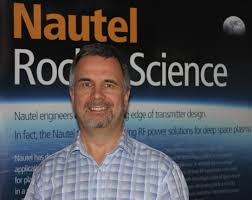Nautel, the Nova Scotia company that makes radio transmitters, is diversifying into a range of new ventures including rocket propulsion systems that could shorten the time it takes to travel to Mars.
Based in Hackett’s Cove near Peggy’s Cove, the company has grown into one of the world’s largest maker of AM and FM radio transmitters — an enterprise that will continue to be the cornerstone of Nautel’s business.
But the company has found opportunities in new fields and is planning to expand its design and R&D staff to work on new products. It will likely branch into industrial heating and sonar in the coming months, and is looking at working with a partner to produce plasma rocket systems, which could propel Mars-bound vessels once they escape the Earth’s gravitational pull.
“We have a very robust core market but now we have the opportunity to expand into some new things,” Nautel president and CEO Kevin Rodgers said in an interview.
Opened in 1969, Nautel changed owners in the past few years and Rodgers is now the sole proprietor. It has focused on transmitter manufacturing and has doubled its revenues in the past decade. Since Rodgers began to buy into the company in 2011, it has increased its staff to 240 from 210. Its largest recent order is a two-megawatt AM radio transmitter for a customer in Hungary, tied for the world’s largest, with the capacity to broadcast from Ireland to Malaysia. It’s 20 times larger than the biggest AM transmitter in North America.
With its current expansion plans, the company intends to increase its design team by half and grow its research and development budget by 40 per cent. Rodgers said the increases will take place this year, but declined to state the specific staffing levels or dollar amounts.
One of the company’s main capabilities is working with radio frequencies, which among other things can be used to produce heat. (Think microwave ovens.) It is developing new applications for these heating systems.
The sexiest of the new business lines is undoubtedly the plasma rocket propulsion system, which it is working on with Ad Astra Rocket Co. of Webster, Texas. They have designed a system in which a Nautel radio frequency generator would heat hydrogen gas to convert it to a plasma, which would be burned to provide steady propulsion. Rodgers said it could cut the time of a trip to mars from four months to as few as 39 days.
Nautel recently hosted two Canadian astronauts — Chris Hadfield and David Saint-Jacques — to tour its facility and discuss the rocket project.
Nautel now has a sonar product ready for the market and could have its first contract for an industrial heating system within a month, said Rodgers. The drying product could be used to dry a range of materials, including wood and hay.
The worldwide radio market will continue to be the focus of Nautel’s design efforts as the company concentrates on innovations for AM, FM and MW transmitters of all power ranges.
“We now have more than 15,000 radio transmitters in 177 different countries,” said Mike Morris, Nautel’s chief operations officer.
“And we have gotten a clear directive from our thousands of customers to continue our focus on easy-to-use, reliable and versatile products for this industry.”










